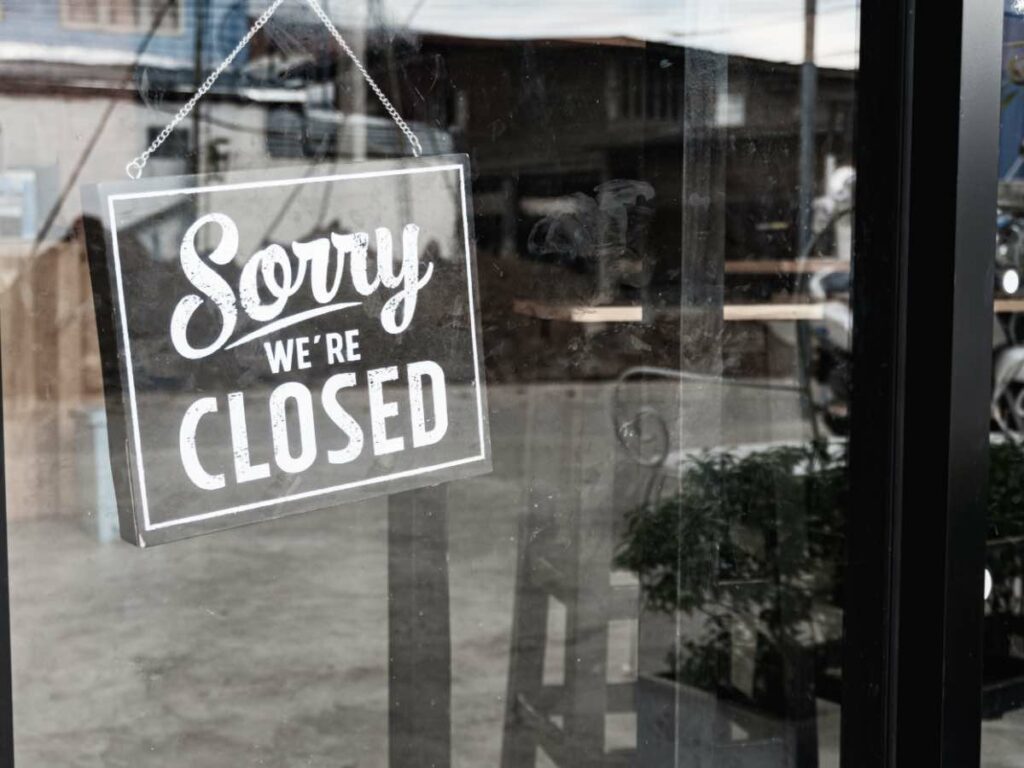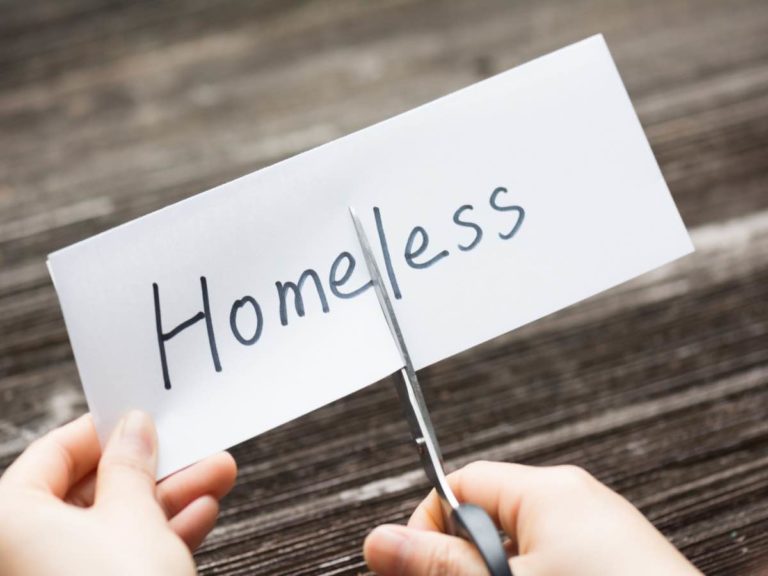Why are Colleges Closing?
Since 2016, up to 70 postsecondary institutions have closed or merged with other schools or are planning to close or merge in the next few years — some of them could wind up on your college list.
Most colleges close due to either running out of money or running out of students. In many instances, the shutting down of colleges can be traced back to the Great Recession of 2008, which has led to reductions in state funding. Changes in enrollment trends and a decline in the interest to earn a college degree are other culprits, too.
There are other reasons why colleges close, from a drop in high school grads to a college degree’s changing value.

How Can You Tell If a College Might be Closing?
Some of the possible telltale signs that a college might go out of business anytime soon include decreasing graduation and declining maintenance. In some instances, offering increased tuition discounts could be an indicator that the institution is desperately attracting students to keep the flow of cash for operations going.
Getting admitted to your dream school is one thing. Having to switch colleges because your dream school is shutting down is another thing, which can prove to be more stressful than when applying to it.
It’s a good thing that there are some warning signs that the school you are about to attend might call it quits.
- Dwindling enrollment – When researching schools to add to your college list, remember to look at the population. But don’t just check out its current student body — also inspect enrollment stats in the past few years. If the numbers seem to keep dropping every admissions cycle, the school might be heading south.
- Dropping graduation rates – It’s not just the number of students getting in that you should observe but also the number of those who are exiting the school with a college degree. In some instances, low graduation rates are a sign that students are unhappy with the school, which may eventually lead to the institution’s demise.
- Neglected campus – Taking a campus tour is one of the most important steps to take when shopping for colleges. Are the sidewalks uneven or cracked? Are the windows broken? Are the buildings crumbling? Are the gardens unkempt? If the campus is in terrible shape, chances are that the school has zero funds for maintenance.
- Tuition discounts – It’s rare for students to pay full sticker price, thanks to scholarships and grants. There are instances, too, when schools slash tuition costs to make college even more affordable. But if the cost of attendance is unusually bargain-basement priced, the college might be desperately trying to keep itself alive.
- News reports – Closing down of colleges do not happen in a snap — most of the time, they realize that they could be shutting down years before they actually do. This is why you may scour sites that connect colleges with students as well as student newspapers, too, to look for indicators that the colleges you are eyeing might be closing.
Which Colleges Will Close Soon?
In 2023, a handful of colleges have already closed; some are set to shut down as a result of either termination of operation or merging with another academic institution. A number of higher education institutions are also known to close in 2024, with some of them announcing the matter a couple of years in advance.
Below, I will enumerate a handful of colleges and universities that have either closed or are about to close this year and in the following year as well as the reasons for them closing up shop.
Colleges closing or have closed in 2023
- Chatfield College – According to its president, Robert Elmore, it was economically unsustainable for Chatfield College to continue to operate as a college due to declining enrollment and demographic trends.
- ASA College – Formerly known as Advanced Software Analysis, ASA College, which was a New York institution focused on computer programming, lost its MSCHE accreditation, causing it to close in February 2023.
- Cazenovia College – In the spring of 2023, Cazenovia College announced that it was shutting down permanently, pointing to low enrollment and decreased finances as the main reasons for closing.
- Finlandia University – The board of trustees decided to dissolve Finlandia University because of dwindling endowment, declining high school graduates available and decreasing interest of people in earning a college degree.
- Iowa Wesleyan University – Various reasons could be blamed for the closing of Iowa Wesleyan University, including a substantial drop in donations, increased operating costs and changing enrollment trends.
- Holy Names University – After 154 years, Holy Names University has decided to close its doors to degree-seeking students for good due to declining enrollments, rising operational costs and increasing need for financial aid.
- Cardinal Stritch University – Because of escalating operational and facility challenges as well as downward enrollment trends, Cardinal Stritch University, which is a private Roman Catholic university, closed down.
- Presidio Graduate School – Presidio Graduate School is scheduled to merge with the University of Redlands, resulting in the formation of the Presidio Center for Sustainable Solutions in the School of Business & Society.
- Presentation College – For many years now, Presentation College, which is a specialty health science baccalaureate institution, is set to close in 2023 due to longstanding issues with finances and enrollment.
- American University of Puerto Rico – After 2 hurricanes hit in 2017, the American University of Puerto Rico has been having a hard time recovering due to poor economic conditions and low high school graduation rates.
Colleges set to close in 2024
- Pennsylvania College of Health Sciences – In 2023, the Pennsylvania College of Health Sciences announced that it has agreed to merge with Saint Joseph’s University, which will increase its academic portfolio and geographic reach.
- Indiana University – Purdue University Indianapolis, Indiana – After a little more than 50 years, Indiana University and Purdue University will put their merger, which has resulted in the formation of UPUI, to an end.
- St. Augustine College – By the spring of 2024, St. Augustine College is expecting its merging with Lewis University, which is a private Lasallian university, to come to completion and to run under the former’s name.
- St. John’s University – Staten Island – Back in 2022, St. John’s University, which is a New York-based Catholic institution, announced that it will shut down its Staten Island campus in 2024 as a result of decreased enrollment.
So, What Should You Do If Your College is Closing?
Heard that the postsecondary institution you are attending right now is closing anytime soon?
If possible, stay right where you are until you finish your courses — it’s usually easier to transfer colleges after finishing the semester or academic year or, in the case of going to a community college, after earning your associate degree.
And speaking of transferring, check if previously earned college credits will transfer with you, which is commonly a non-issue if the school is regionally accredited and has some sort of articulation agreement with other institutions.
Be ready by requesting official copies of your transcript as soon as possible.
Refrain from panicking if you heard that your current college is facing closure. Institutions of higher education getting dissolved as a result of closing or merging is nothing new, and many affected students thrive after transferring schools.
Also, prospective employers won’t take it against you — continue your studies and don’t let the matter get the best of you.
Will you be retained if your college merges with another college?
Students are usually retained by colleges that have merged with other academic institutions.
However, in some instances, the merging could cause a loss of certain degree programs or majors, which could mean the retained students having to change their academic plans if they don’t want to switch schools.
Read Next: What happens if college closes
Disclaimer: The views and opinions expressed in this article are those of the authors and do not necessarily represent those of the College Reality Check.





